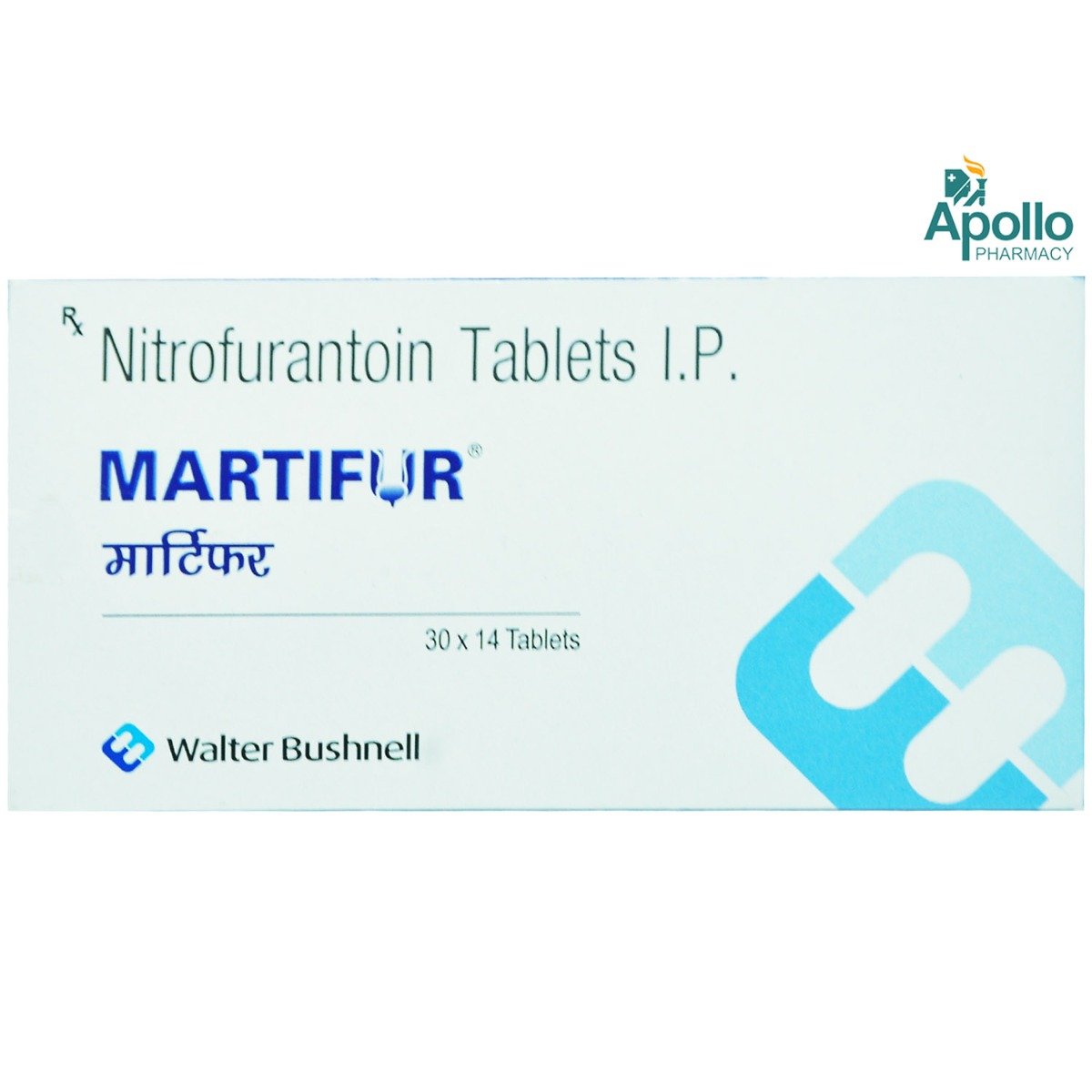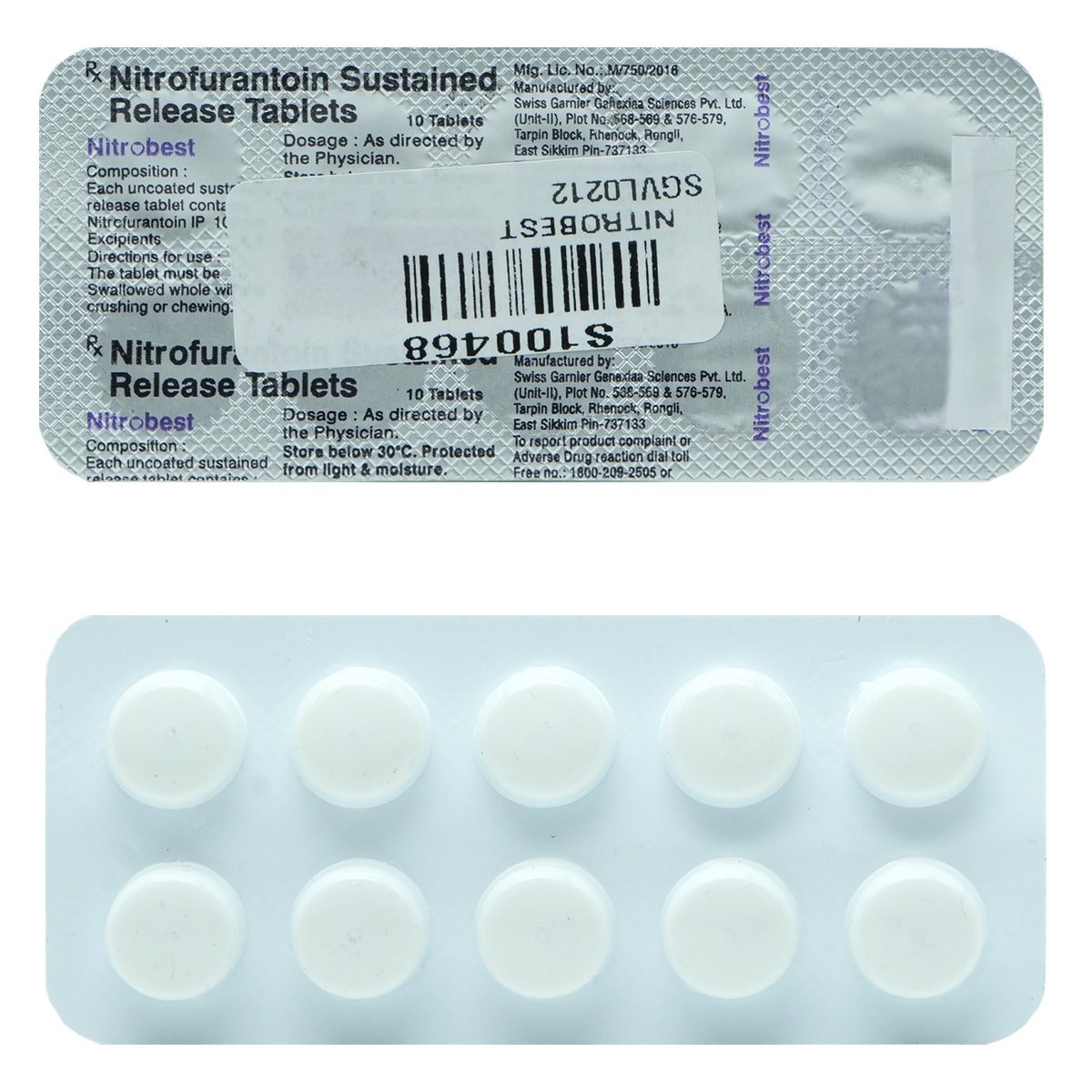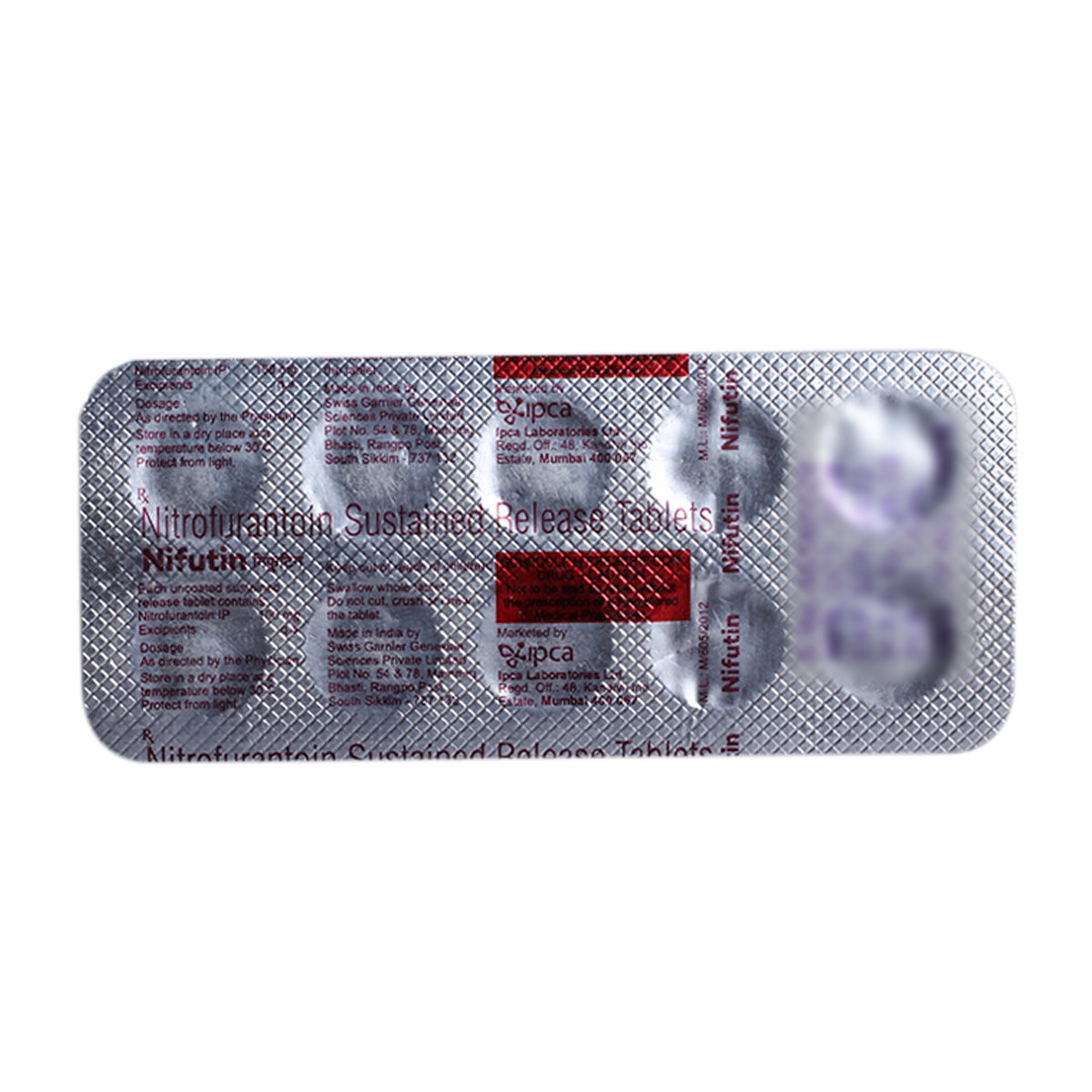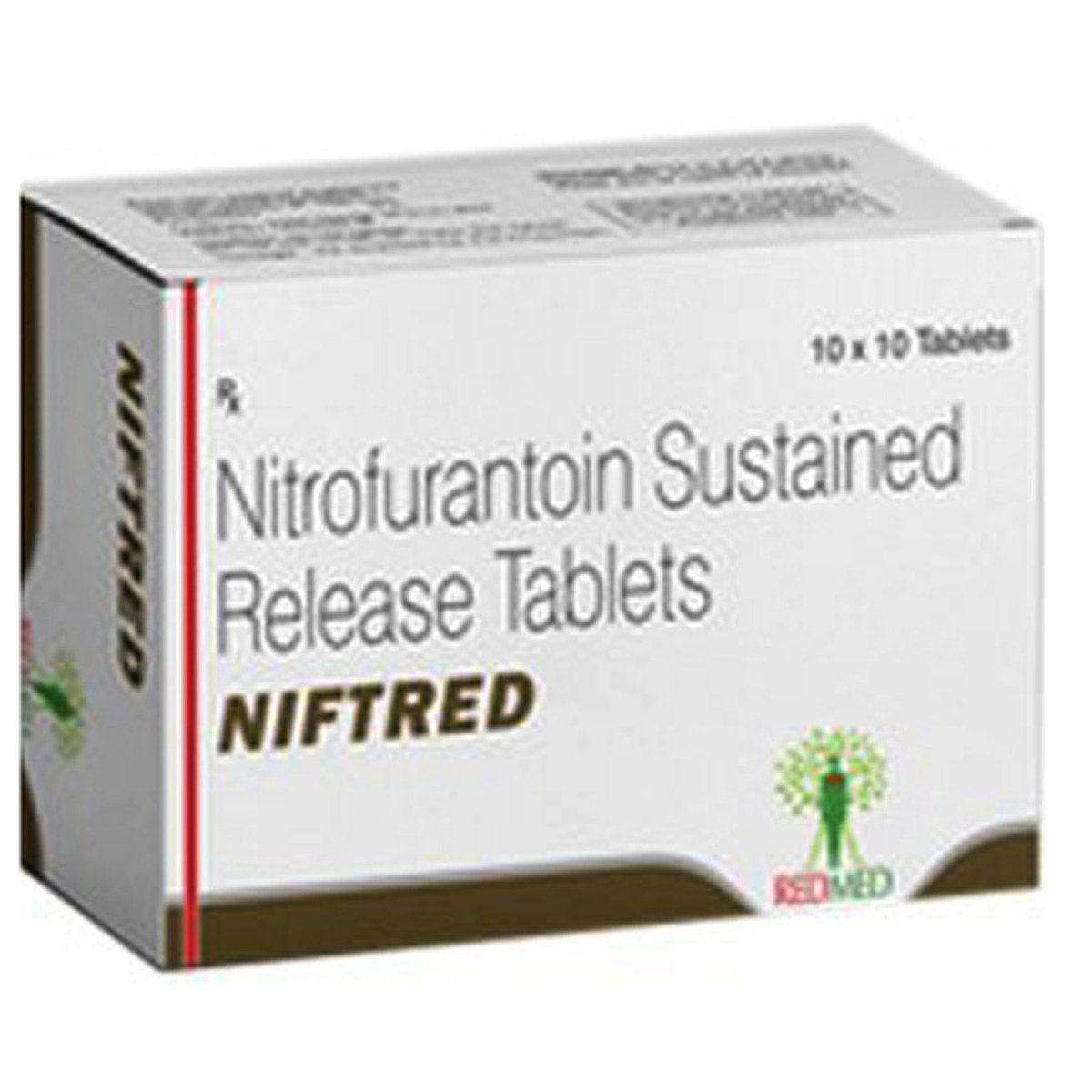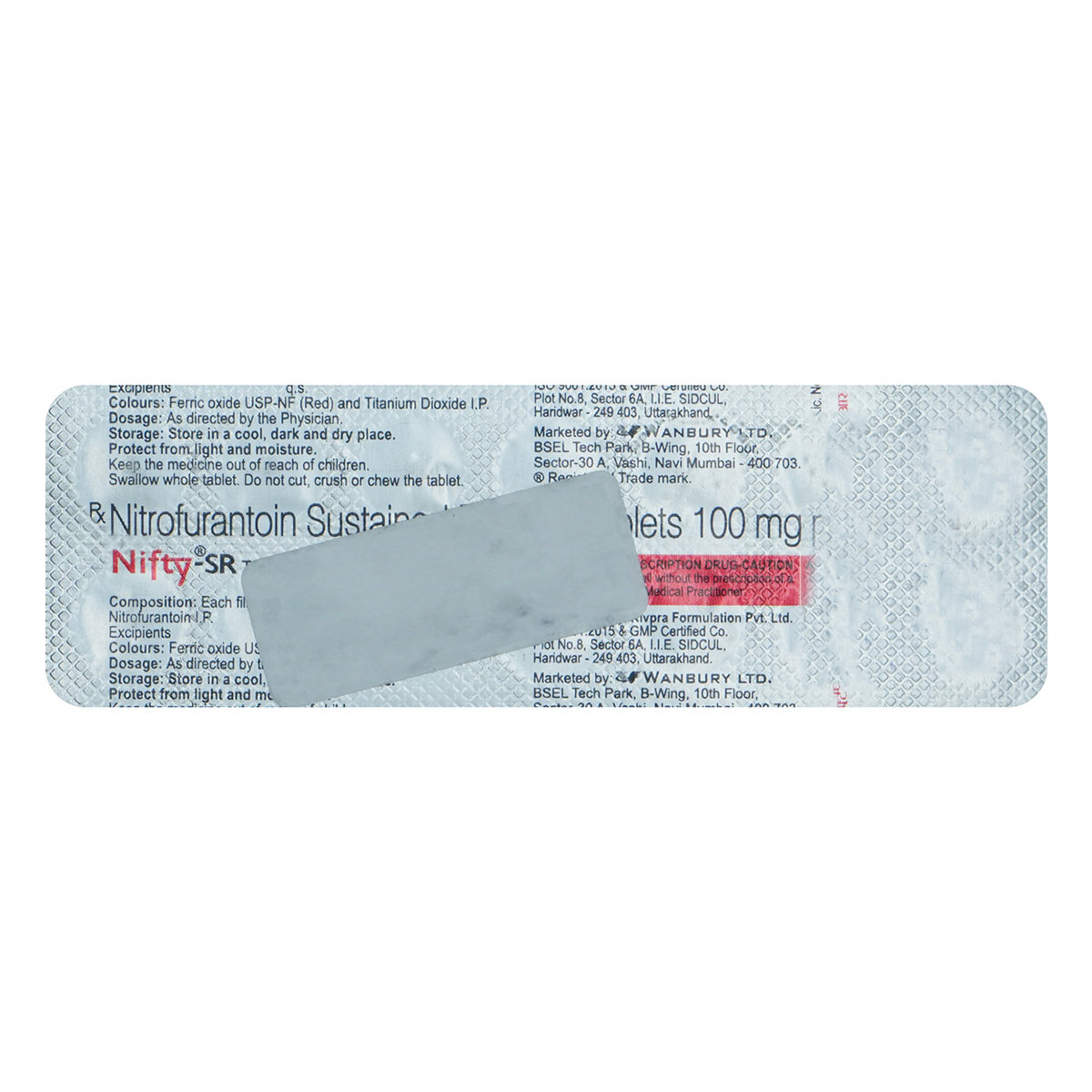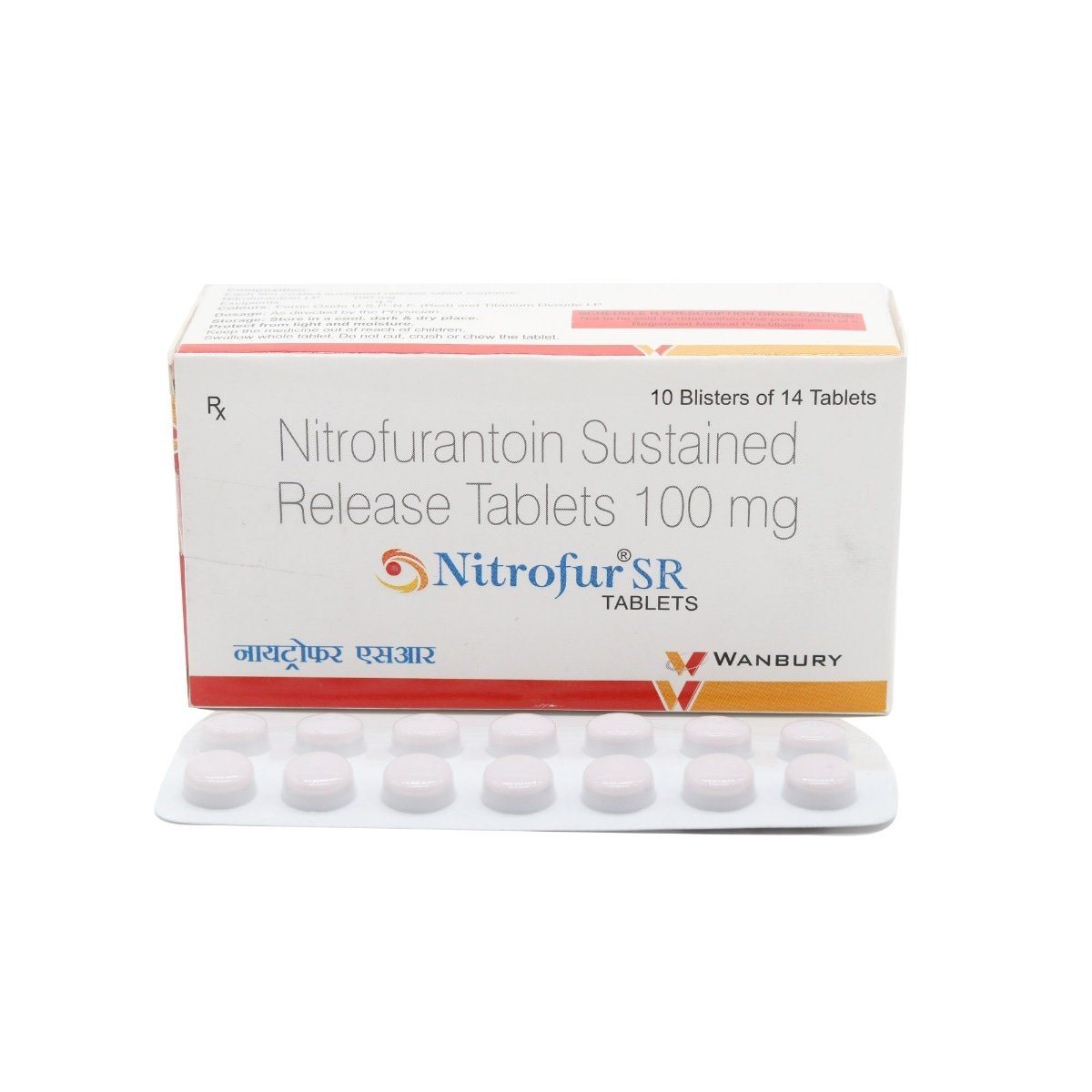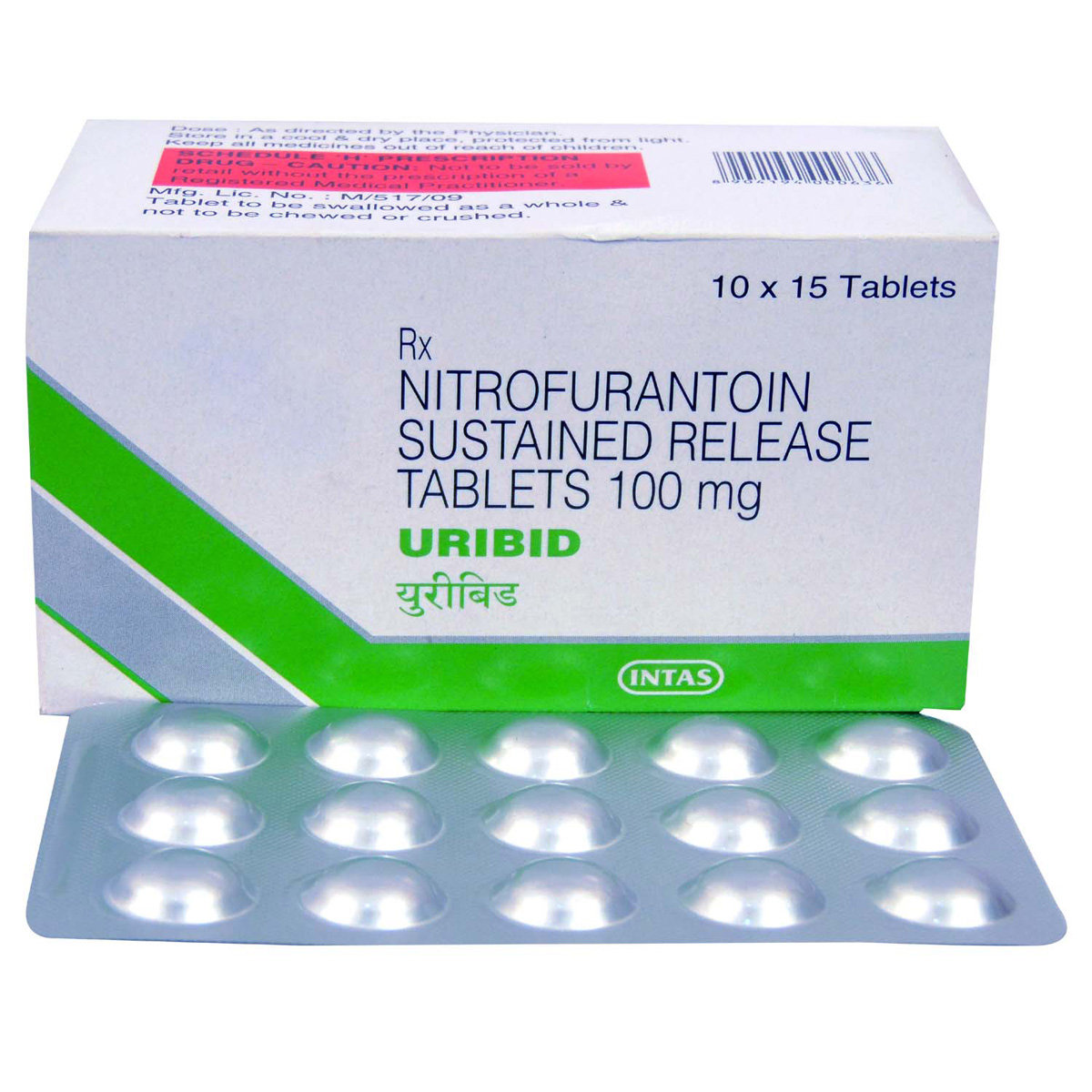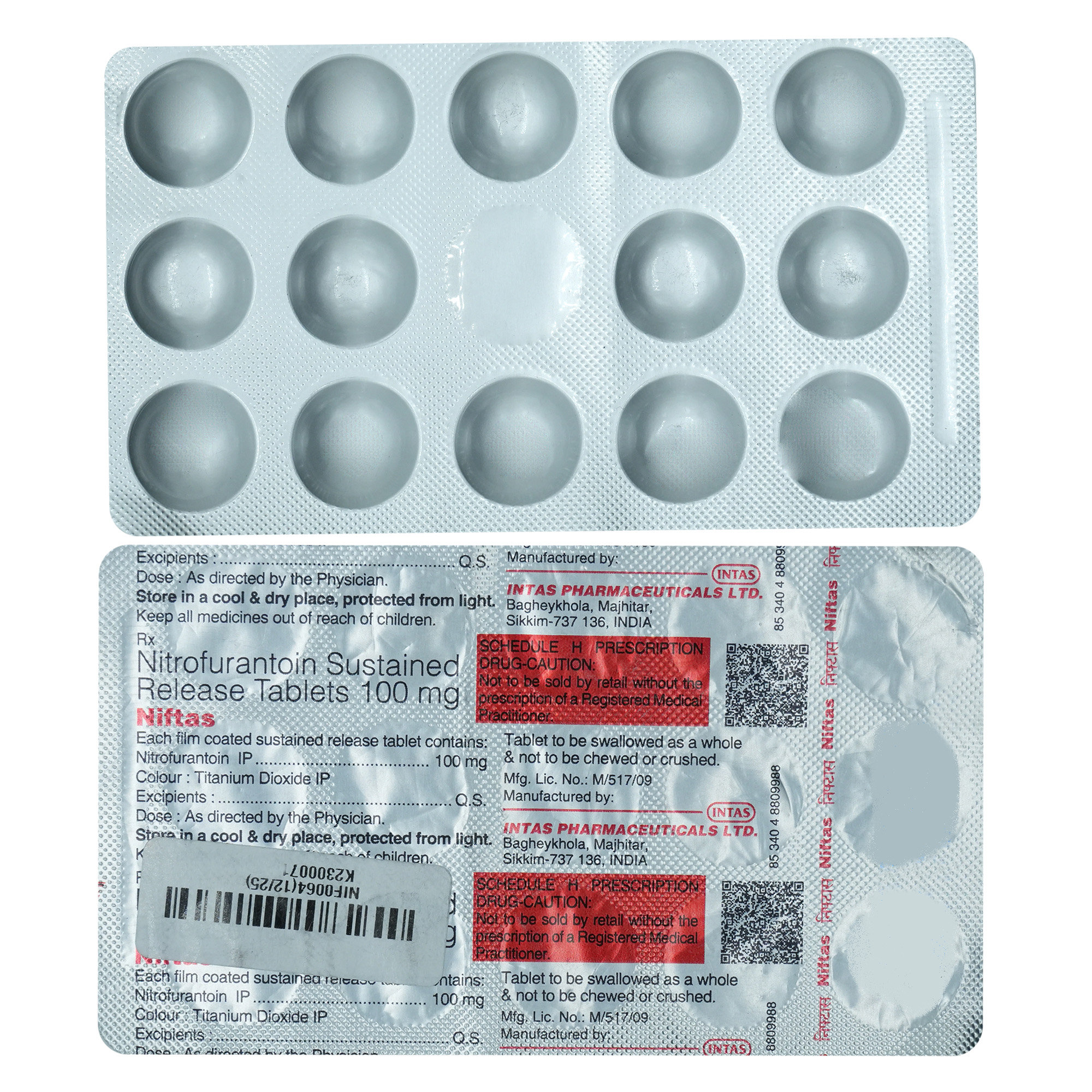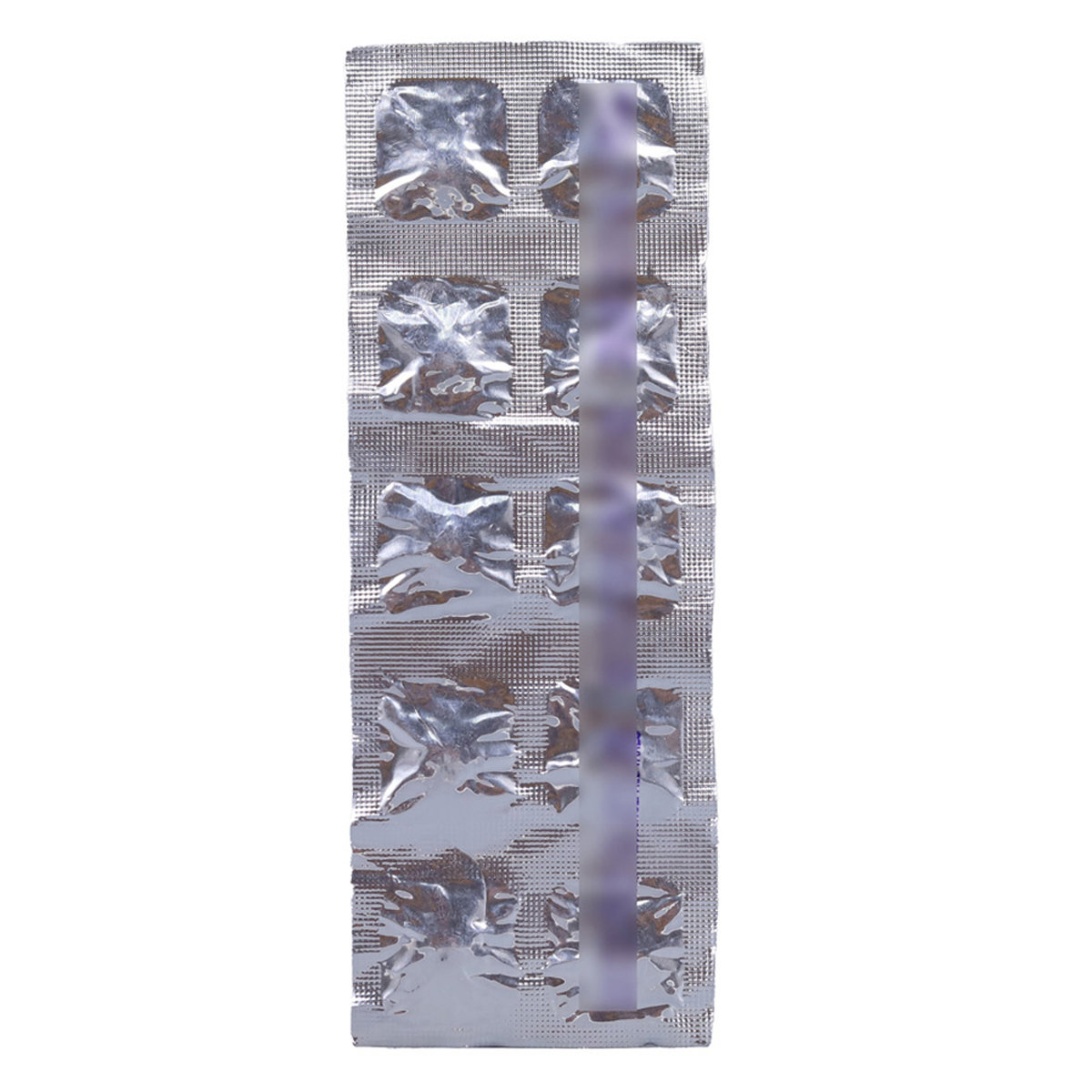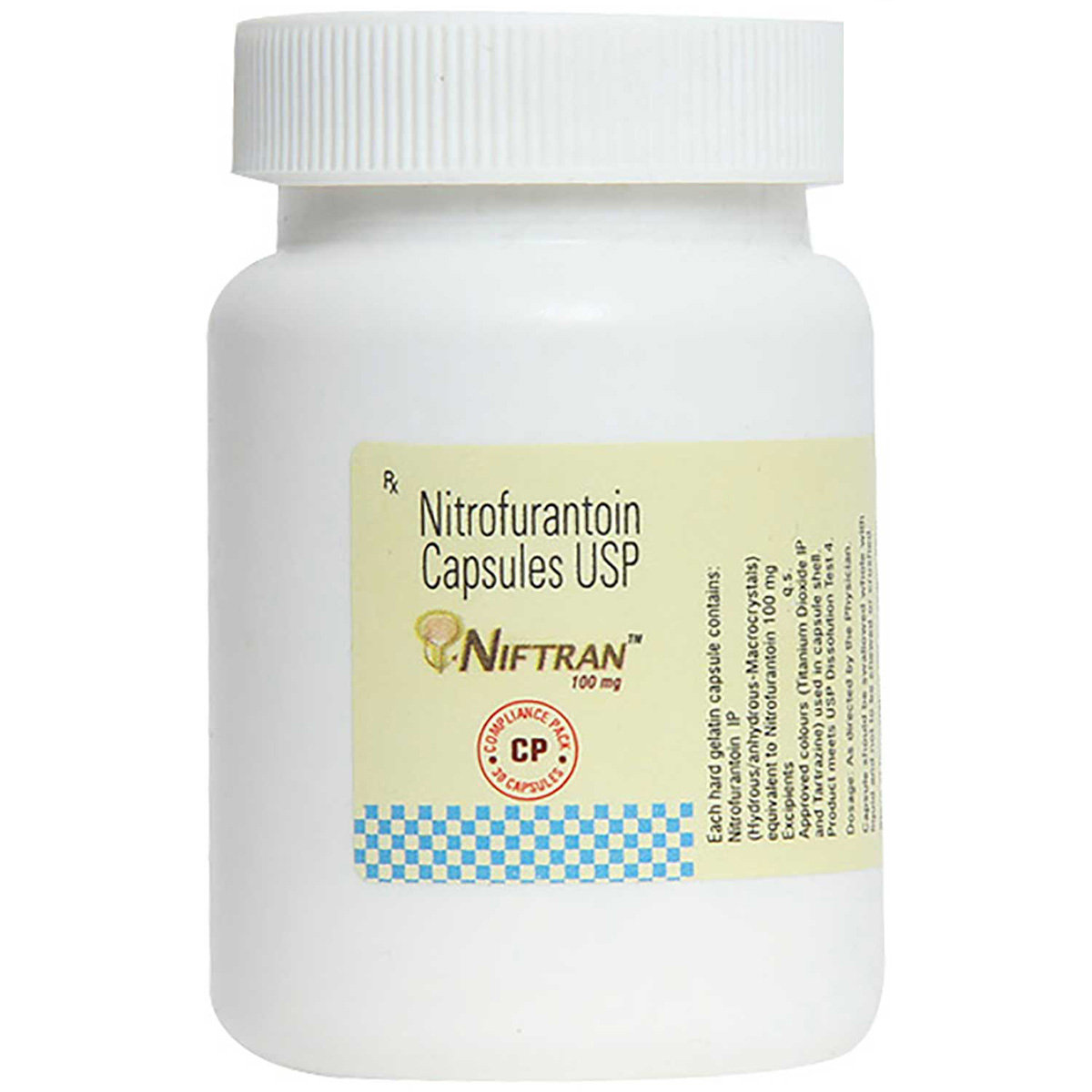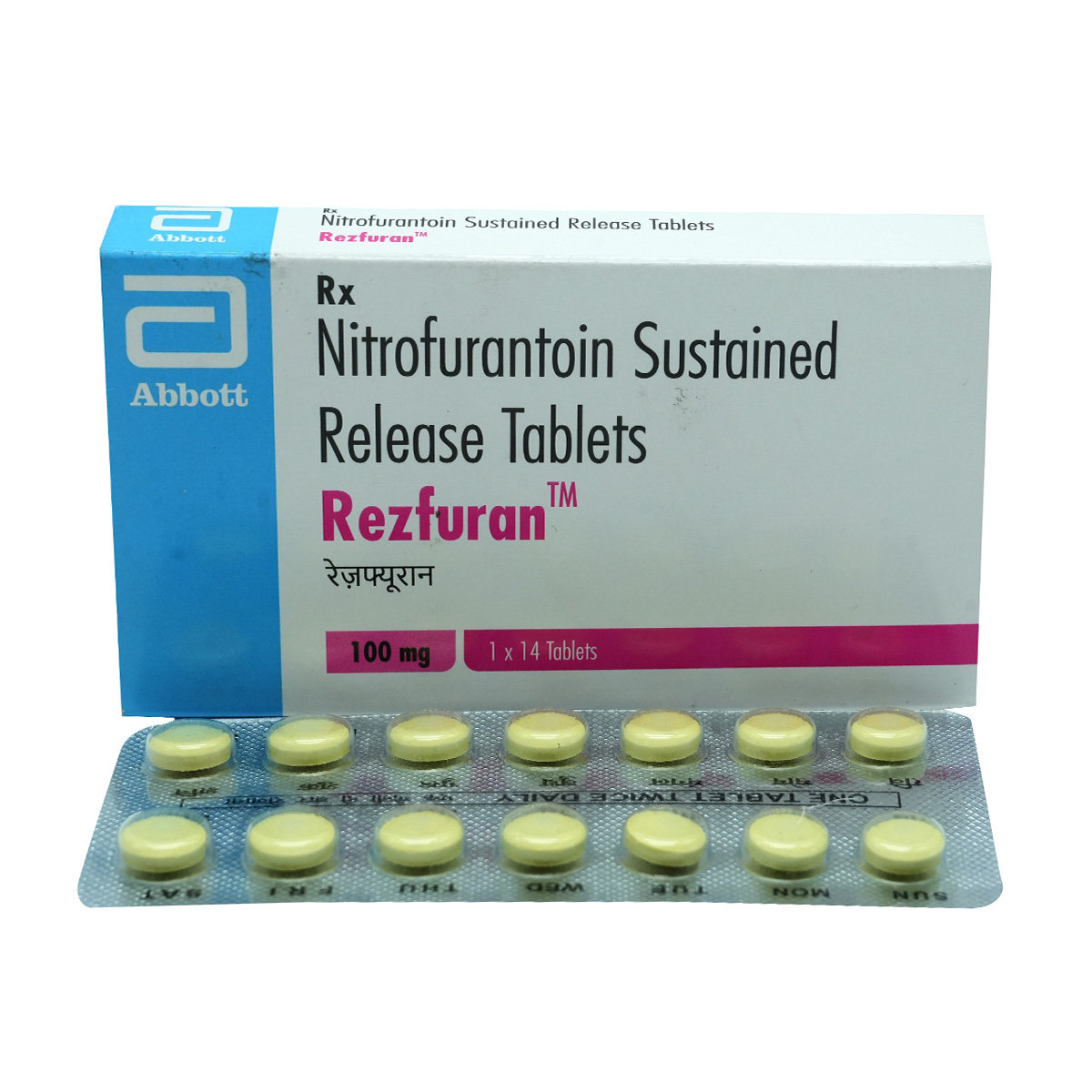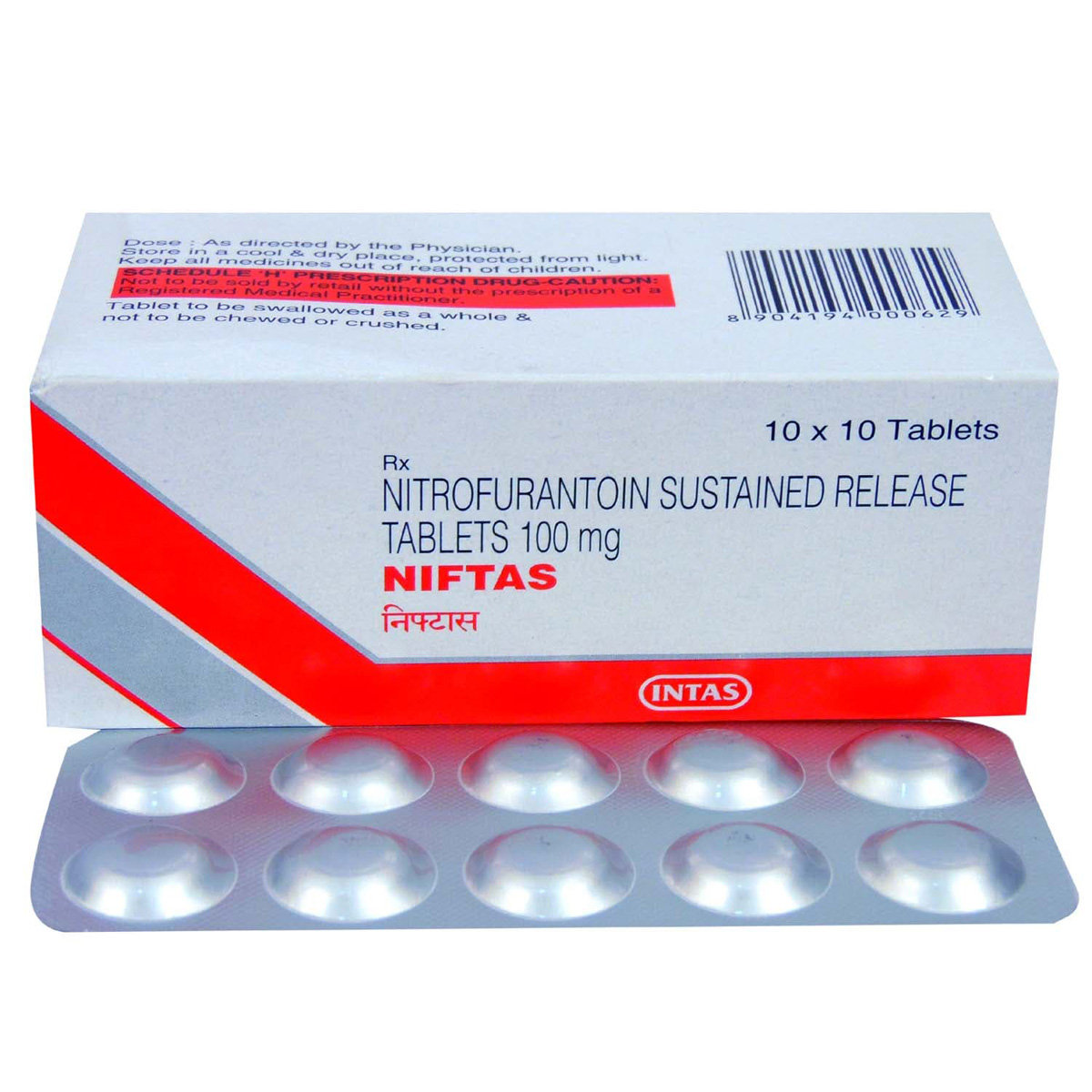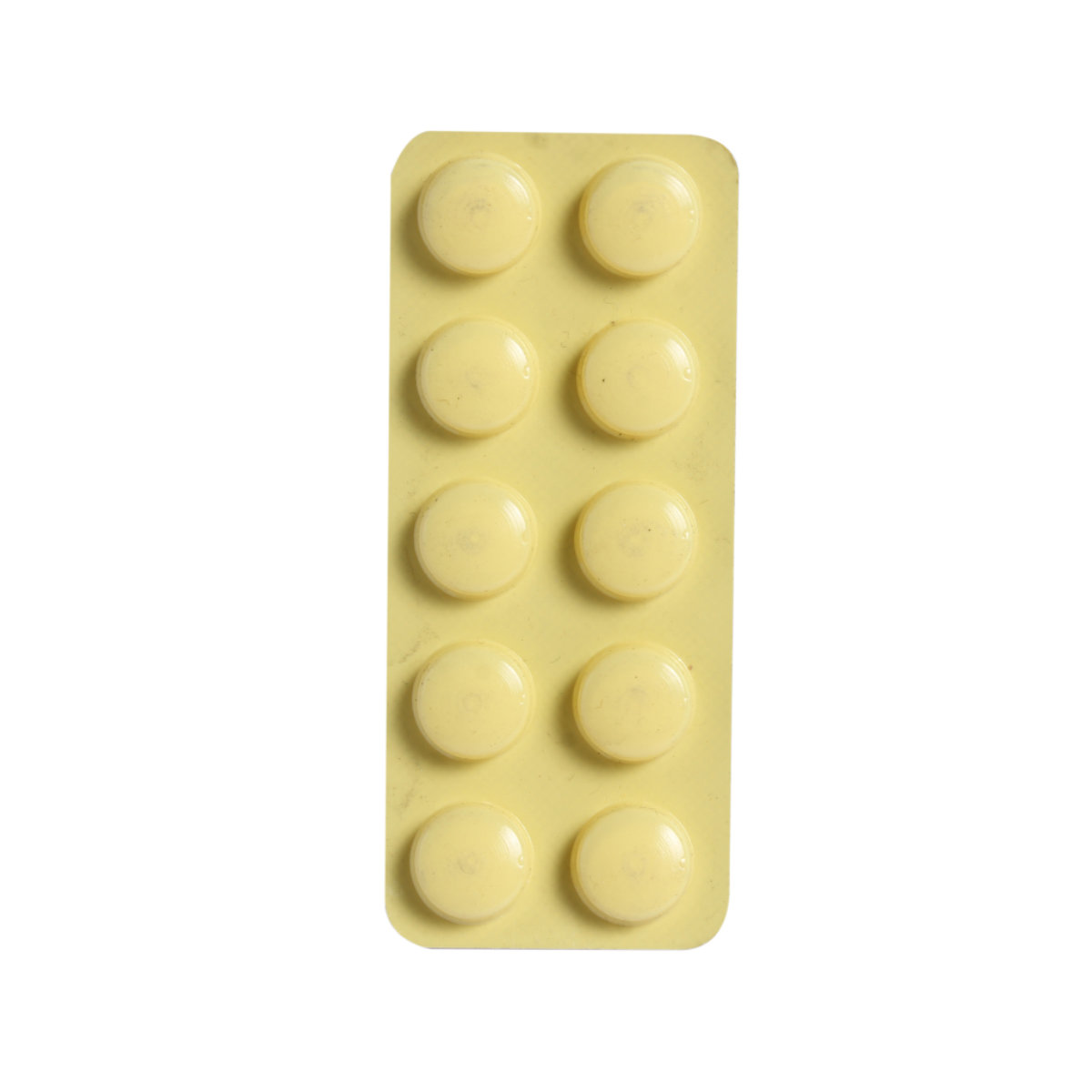Nitrop-100 SR Tablet 15's
MRP ₹201
(Inclusive of all Taxes)
₹30.1 Cashback (15%)
Provide Delivery Location
Online payment accepted
 Prescription drug
Prescription drugWhats That
Composition :
Manufacturer/Marketer :
Consume Type :
Return Policy :
About Nitrop-100 SR Tablet 15's
Nitrop-100 SR Tablet 15's belongs to a group of antibacterial or antibiotics. Nitrop-100 SR Tablet 15's is used to prevent and treat bacterial infections like urinary tract infections (UTIs), including Bladder Infection (cystitis). Besides this, it is also used in to treat kidney infections. A urine infection is often called a urinary tract infection (or simply, UTI). Most urine infections are caused by germs (bacteria). They are usually easily treated with a short course of an antibacterial medicine such as Nitrop-100 SR Tablet 15's. Occasionally, longer-term treatment is needed to prevent infections from coming back.
Nitrop-100 SR Tablet 15's contains Nitrofurantoin. When you take Nitrop-100 SR Tablet 15's, your body immediately filters it out of your blood and into your urine. If you have a urinary tract infection, this indicates that the treatment is concentrated at the site of illness. On the other hand, nitrofurantoin kills bacteria by entering their cells and destroying their genetic material. As a result, it is effective against bacterial infections.
You should take Nitrop-100 SR Tablet 15's only if your doctor has prescribed you. Most bacterial infections get treated within one week, while some conditions might take longer. If you stop taking it too early, the infection may return or worsen. So, it would be best if you tried to complete the prescribed dosage. During the treatment with Nitrop-100 SR Tablet 15's, you may observe some common side effects like feeling sick (nausea), vomiting, diarrhoea, loss of appetite and headaches. But these side effects are usually in the initial phase and then resolve after some time. However, if these side effects persist, let your doctor know about this if you notice any sudden wheeziness, tightness in the chest or throat, difficulty in breathing, swelling of the eyelids, face or lips, rash or itching (especially affecting your whole body) STOP TAKING your medicine and go to a doctor immediately.
Nitrop-100 SR Tablet 15's is generally well-tolerated among adults and children. Do not take Nitrop-100 SR Tablet 15's if you are allergic to amoxicillin, penicillin antibiotics, have liver/kidney problems, and had any vaccinations. If you are pregnant or breastfeeding, think you may be pregnant or are planning to have a baby, ask your doctor for advice before taking Nitrop-100 SR Tablet 15's. As far as it is known, Nitrop-100 SR Tablet 15's may be used in pregnancy. However, it should not be used during labour or delivery because there is a possibility that use at this stage may affect the baby. If you want to breastfeed, please consult your doctor first.
Uses of Nitrop-100 SR Tablet 15's
Directions for Use
Key Benefits
Nitrop-100 SR Tablet 15's contains antibiotic Nitrofurantoin, which helps in treating and preventing a wide range of bacterial infections like urinary tract infections (UTIs), including Bladder Infection (cystitis) and kidney infections caused by most susceptible bacteria (susceptible strains of Escherichia coli, enterococci, staphylococci, Citrobacter, Klebsiella and Enterobacter). It is bactericidal in nature and works by killing bacteria that cause infections by preventing the formation of the cell wall required for living. It also inhibits the repair of bacterial cells. Altogether it kills the bacteria.
Storage
Drug Warnings
Do not take Nitrop-100 SR Tablet 15's if you are allergic or have had a severe reaction to Nitrop-100 SR Tablet 15's or any other medicines in the past, or inherited conditions such as porphyria (a blood disorder), glucose-6-phosphate dehydrogenase (G6PD) deficiency, severe kidney disease, diabetes, or any illness-causing severe weakness, anaemia or vitamin B deficiency. Inform your doctor if you have or have ever had a kidney, heart, or lung transplant, a joint or tendon disorder such as rheumatoid arthritis (an autoimmune disorder of joints causing pain, swelling, and loss of function), seizures (fits), epilepsy or if you participate in regular physical activity. Taking Nitrop-100 SR Tablet 15's may worsen muscle weakness in people with myasthenia gravis (a nervous system disorder that causes muscle weakness) and cause severe difficulty breathing or death. Grapefruit, a calcium-rich food, should be avoided along with Nitrop-100 SR Tablet 15's. And also, exposure to sunlight should be avoided while taking Nitrop-100 SR Tablet 15's as it may cause increased phototoxicity or photosensitivity. Patients with epilepsy and irregular heartbeat (QT prolongation) should tell their doctor before taking Nitrop-100 SR Tablet 15's.
Diet & Lifestyle Advise
- It would be best to take probiotics after taking the full course of Nitrop-100 SR Tablet 15's to restore some healthy bacteria in the intestine that may have been killed. Taking probiotics after antibiotic treatment can reduce the risk of antibiotic-associated diarrhoea. Certain fermented foods like yoghurt, cheese, sauerkraut and kimchi can help restore the intestine's good bacteria.
- Include more fibre-enriched food in your diet, as it can be easily digested by gut bacteria which helps stimulate their growth. Thus fibre foods may help restore healthy gut bacteria after taking a course of antibiotics. Whole grains like whole-grain bread, and brown rice, should be included in your diet.
- Avoid taking too much calcium enriched foods and drinks as it might affect the working of Nitrop-100 SR Tablet 15's.
- Avoid intake of alcoholic beverages with Nitrop-100 SR Tablet 15's as it can make you dehydrated and affect your sleep. This can make it harder for your body to aid the Nitrop-100 SR Tablet 15's in fighting off infections.
Side Effects of Nitrop-100 SR Tablet 15's
- Feeling sick (nausea)
- Dizziness or feeling sleepy
- Being sick (vomiting)
- Loss of appetite
- Diarrhoea
- Headaches
Habit Forming
Therapeutic Class
All Substitutes & Brand Comparisons
RX
Martifur Tablet 14's
Walter Bushnell
₹83.5
(₹5.25 per unit)
60% CHEAPERRX
Nitrobest Tablet 10's
Lupin Ltd
₹83
(₹7.47 per unit)
44% CHEAPERRX
Nifutin Tablet 10's
Ipca Laboratories Ltd
₹85
(₹7.48 per unit)
44% CHEAPER
Author Details
We provide you with authentic, trustworthy and relevant information
FAQs
Drug-Drug Interactions Checker List
- FLUCONAZOLE
- LACTOBACILLUS ACIDOPHILUS
- CHOLERA VACCINE
- LEFLUNOMIDE
- LOMITAPIDE
- MIPOMERSEN
- PEXIDARTINIB
- PRILOCAINE
- SODIUM NITRITE
- TERIFLUNOMIDE
- TYPHOID VACCINE
Disease/Condition Glossary
Bacterial infection: A bacterial infection is a condition in which harmful bacteria enter, multiply, and infect our body. It can target any body part and multiple very quickly. When you get infected with bacteria, you can experience generalized symptoms like fevers, chills, and fatigue. Bacteria are of various forms comprising commonly spherical, rod, and spiral-shaped. Bacterial infections vary from minor illnesses like sore throat and ear infections to severe brain infections like meningitis and encephalitis. Few harmful bacteria that cause infections include Streptococcus, Staphylococcus, and E. coli. Anyone can become infected with a bacterial infection. But, people with weak immune systems or taking immunosuppressive medicine can make you more prone to bacterial infection.
Urinary tract infection (UTI): UTI is the most common infection in humans caused by microbes and can occur in any part of the urinary tract, such as the bladder, urethra, kidneys or ureters. Most urinary tract infections involve the bladder and urethra in the lower tract. It mostly occurs in women than in men. The symptoms of lower tract (bladder, urethra) infection include increased urge to urinate, bloody urine, pain with urination or pelvic pain in women. The symptoms of upper tract (kidneys, ureters) infection include vomiting, nausea, fever or back pain.

Have a query?
Alcohol
Safe if prescribed
No reported interaction with Nitrop-100 SR Tablet 15's. But, It is best to avoid alcohol while taking medication.
Pregnancy
Consult your doctor
Nitrop-100 SR Tablet 15's can be safely taken by pregnant women if prescribed by the doctor. But do not take nitrofurantoin during labour and childbirth, as there's a chance that it can affect the baby's blood.
Breast Feeding
Consult your doctor
Nitrop-100 SR Tablet 15's is excreted in breast milk. Caution should be exercised, and it is advisable to consult a doctor before using it.
Driving
Safe if prescribed
Nitrop-100 SR Tablet 15's may cause dizziness and drowsiness, and the patient should not drive or operate machinery.
Liver
Consult your doctor
If you have or had a history or evidence of any liver-related diseases, please consult the doctor before taking medicine.
Kidney
Consult your doctor
Nitrop-100 SR Tablet 15's is contraindicated in patients with renal dysfunction and patients with an eGFR of less than 45 ml/minute. It is advisable to consult a doctor before using it.
Children
Safe if prescribed
Nitrop-100 SR Tablet 15's can be given to children but under child specialist medical supervision. Nitrop-100 SR Tablet 15's is prescribed to the children to treat complicated urinary tract infections.




